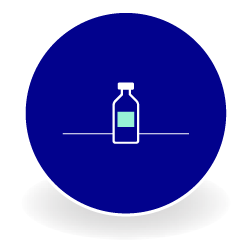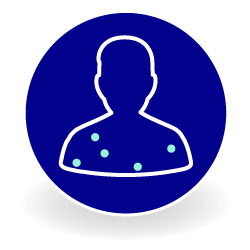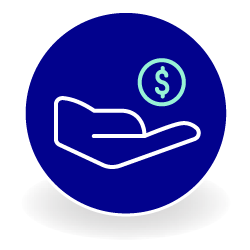
Starting PrKORSUVA®?
Chronic kidney disease (CKD)-associated itch—or pruritus—is the itching experienced by some patients with CKD undergoing hemodialysis.
What the ORIJIN® Patient Support Program has to offer:
If you have any questions or concerns about taking KORSUVA, talk to an ORIJIN nurse. Our nursing professionals are here to help you with your journey. Get counselling services from an ORIJIN nurse on:

How KORSUVA will be administered

Information related to treating CKD-associated itch

What to expect during your treatment
ORIJIN can also help you with:

Financial assistance

Reimbursement navigation
What is KORSUVA used for?
KORSUVA is used to treat itching in adults with CKD on hemodialysis.How does KORSUVA work?
KORSUVA contains the active substance difelikefalin. KORSUVA works by relieving the need for scratching yourself.What are the possible side effects from using KORSUVA?
These are not all the possible side effects you may have when taking KORSUVA. If you experience any side effects not listed here, tell your healthcare professional. Common side effects (≥1% and <10%) include:- Sensation in the skin or mouth such as tingling prickling, burning or numbness, decreased feeling or sensitivity
- Headache
- Nausea, diarrhea
- Change in how you walk (your gait) and falls
- High blood potassium level (seen in blood tests)
- Back pain
Resources

Other resources

The Kidney Foundation offers information, educational materials, assistance, and peer support.
Otsuka Canada Pharmaceutical Inc. does not operate and is not responsible for the content on this third-party site. If you have any questions or concerns about the products, services, or content on the linked third-party site, please contact the third party directly.
FAQ
KORSUVA is used to treat itching in adults with CKD on hemodialysis.
KORSUVA contains the active substance difelikefalin. KORSUVA works by relieving the need for scratching yourself.
- Sensation in the skin or mouth such as tingling prickling, burning or numbness, decreased feeling or sensitivity
- Headache
- Nausea, diarrhea
- Change in how you walk (your gait) and falls
- High blood potassium level (seen in blood tests)
- Back pain
- Are pregnant, think you are pregnant or plan to become pregnant. It is not known if KORSUVA may harm your unborn baby
- Are breastfeeding or plan to breastfeed. It is not known if KORSUVA can pass into your milk and harm your baby. Talk to your healthcare professional about the best way to feed your baby if you take KORSUVA
- Have an increased potassium level in the blood
- Have or have had heart weakness or a heart rhythm disorder
- Have problems with your liver
- Have reduced function of the blood-brain barrier (such as cancer in the brain or the central nervous system, or a disease of the central nervous system like multiple sclerosis or dementia) as this might increase your risk of side effects
- Are using medicines that could increase the risk of drowsiness or dizziness, such as:
- medicines that slow down brain activity such as those that help with sleep disturbances and anxiety
- medicines to treat allergies, cold, nausea and/or vomiting called sedating antihistamines
- strong painkillers, called opioid analgesics
Chronic kidney disease (CKD)-associated itch—or pruritus—is the itching experienced by some patients with CKD undergoing hemodialysis.
Several factors are believed to contribute to the development of CKD-associated itch, including:
- Nerves misfiring
- Sometimes you feel an itching sensation when your nerves are activated out of proportion or independent of any substance causing itch.
- Immune system overacting
- It could be due to an imbalance in your immune system which leads to more inflammation, causing your skin to itch.



